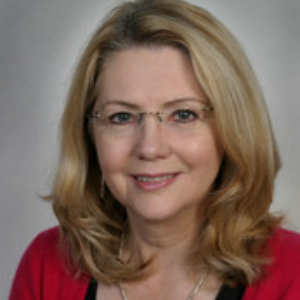Title : Perceived barriers to information about healthy lifestyle and health self-efficacy beliefs among senior citizens in Iceland
Abstract:
The changes in age distribution, with a growing proportion of senior citizens in the world population, pose great challenges. This means that the welfare society needs to prepare for the increasing number of senior citizens and ensure their prospects for health and wellbeing. An important factor is to encourage them to be actively involved in health promotional interventions through lifelong learning. The importance of communicating knowledge about healthy living, in the hope that people can be helped to make sound choices about their health, has been generally recognized. This is though not a simple task, nor have efforts at building peoples capacity always been effective.
Various factors may act as barriers that senior citizens perceive as limiting their possibilities to add to their knowledge of the interrelated aspects of health and lifestyle. It has also been pointed out that there is a distinction between obtaining information and acting on it. The perceived self-efficacy, people's expectations about whether or not they will be able to master behaviour and if so how successful they will be, has been noted as cognitive mediator of action.
The paper will to present findings about the perceived health information barriers and the health self-efficacy beliefs among people at the age 60 years and older in Iceland. The following research questions were developed:
1) What information barriers do senior citizens experience in relation to healthy living?
2) How do senior citizens perceive their health self-efficacy?
3) How do the perceived barriers and health self-efficacy beliefs relate to the senior citizens age groups, sex and education?
The data was gathered by a questionnaire survey in 2012. A total of 176 people at the age 60 years and older participated, 86 were women and 90 were men. The measurement instrument consisted of the following sections:
- Background variables about sex and education
- Two age groups, 87 participants were aged 60 to 67 years and 89 participants were 68 years and older
- Health self-efficacy was measured by the Perceived Health Competence Scale (PHCS). This is an 8-item scale referring to both outcome expectancies and behavioural expectancies. Each question had a 5-point response scale (1 = Strongly agree – 5 = Strongly disagree)
- Barriers to information were measured by 13 statements. Each statement had a 5-point response scale (1 = Strongly disagree – 5 = Strongly agree). ANOVA (one-way) was performed to examine difference across the age groups. To examine the effects of sex and education, and how it interacts on the age groups experience of information barriers and health self-efficacy beliefs, factorial analysis of variance (FANOVA) was used.
The results suggest that senior citizens are faced with barriers to information that can have impact on their possibilities to promote their knowledge of healthy behaviour. Furthermore, they differ in their health self-efficacy beliefs. Sex and education were found to interact on the age groups experience of information barriers and health self-efficacy beliefs. The implications of the findings for the promotion of healthy living among senior citizens will be discussed in the paper.
Audience Take Away:
Dissemination of health information is a vital tool for promoting health and raising the quality of life. For the outcome of health promotion to be successful, it is essential that information and knowledge is provided in an effective way. The paper will seek to contribute to the current knowledge and understanding of senior citizens possibilities for healthy living, and sustainable health and wellbeing, through lifelong learning can be enhanced.
Senior citizens are a heterogeneous group. By dividing them up in age groups and examining the effects of sex and education, the study provides findings about differences or similarities among them.
Identifying the hindrances that different groups of seniors experience and comparing it with their health self-efficacy beliefs, can improve the understanding of the professionals who are responsible for health promotion of: a) The need for enhancing the senior’s health capacities; b) How information can be disseminated more efficiently to them.



